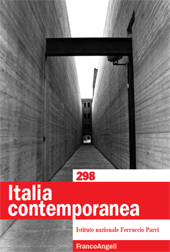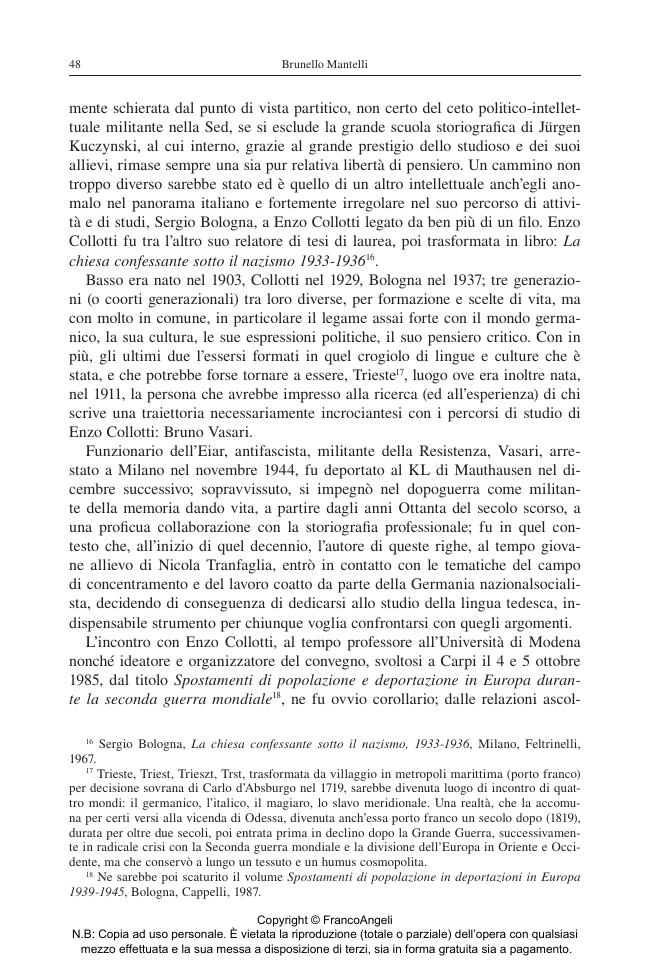Sulla difficoltà di dichiararsi Linkssozialist nel secondo dopoguerra : Enzo Collotti, la Germania, l'Europa
P. 43-52
Enzo Collotti è stato il maggiore storico germanista italiano del Secondo dopoguerra; alla Germania come oggetto di studio egli giunse però non tramite un percorso accademico, ma attraverso la sintesi delle esperienze concretamente vissute da adolescente, tra il 1940 e il 1945, in una città cardine e crocevia come Trieste e dell'interesse verso le componenti della sinistra socialista non riconducibili alle ortodossie comunista e socialdemocratica, tra cui spicca l'austromarxismo. Comprendere la contraddizione tra la presenza nell'area germanofona di una sfera culturale di altissimo livello e il drammatico manifestarsi tra il 1933 e il 1945 della forma più radicale e distruttiva di fascismo divenne di conseguenza uno dei suoi principali obiettivi, a cui dedicò decenni di fattiva ricerca. [Testo dell'editore]
Enzo Collotti was the most important Italian Germanist historian of the post-World War II period. He became interested in German history not through his academic studies, but through his experience as a teenager living in a pivotal and crossroads city like Trieste, where he spent the years 1940-1945, and his fascination for the forms of socialism - particularly Austromarxism - not linked to communist or social democratic orthodoxy. As a result, one of Collotti's main interests, to which he devoted decades of research, was the understanding of the contradiction between the presence in the German-speaking area of a cultural sphere of the highest level, and the dramatic manifestation of the most radical and destructive form of fascism between 1933 and 1945. [Publisher's text]
Ist Teil von
Italia contemporanea : 298, 1, 2022-
Artikel aus derselben Ausgabe (einzeln erhältlich)
-
Informationen
ISSN: 2036-4555
KEYWORDS
- Austromarxismo, Linkssozialismus, Brd, Ddr, nazionalsocialismo, fascismo, dopoguerra, Europa, Germania, Enzo Collotti
- Austromarxism, Linkssozialismus, Brd, Ddr, Nationalsocialism, Fascism, Postwar, Europe, Germany, Enzo Collotti



